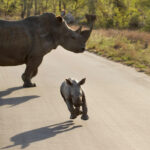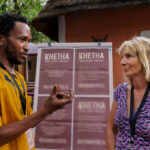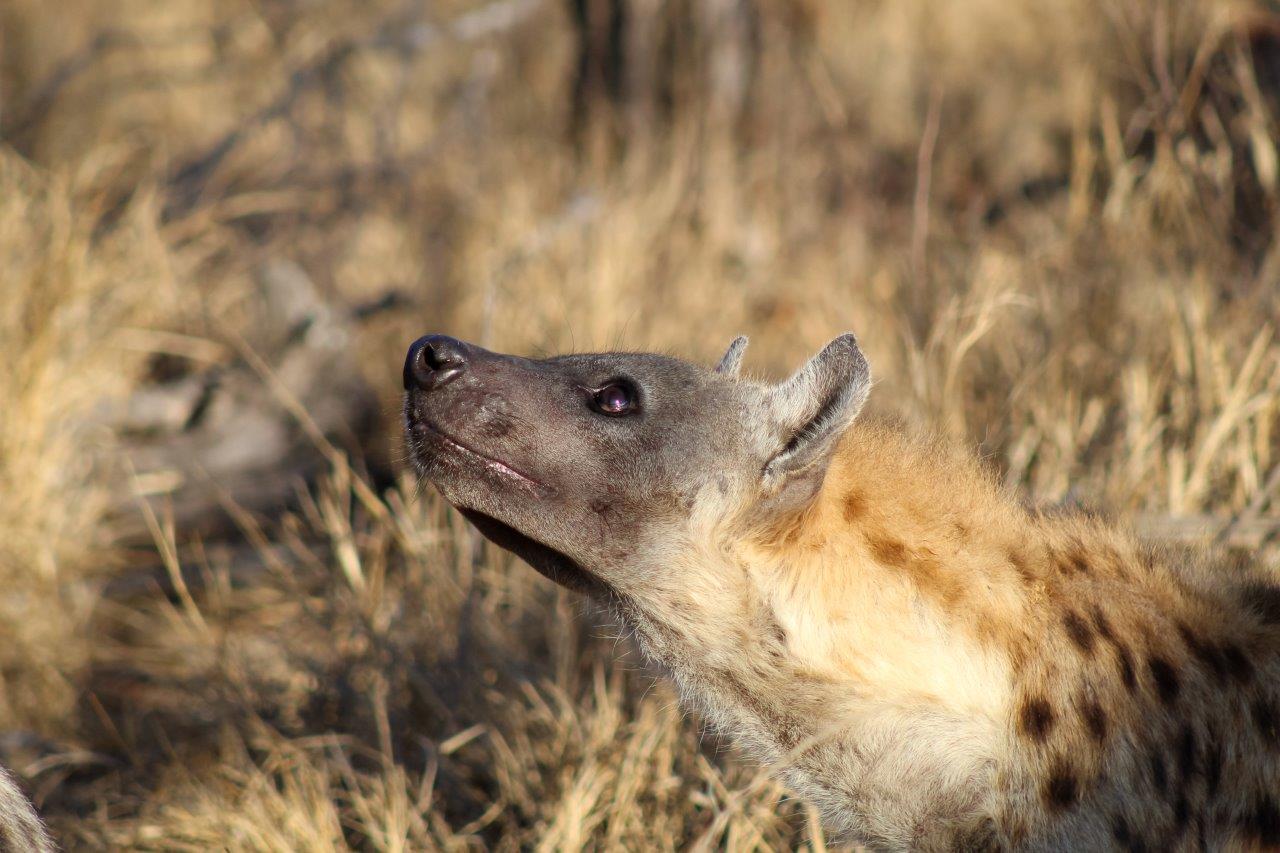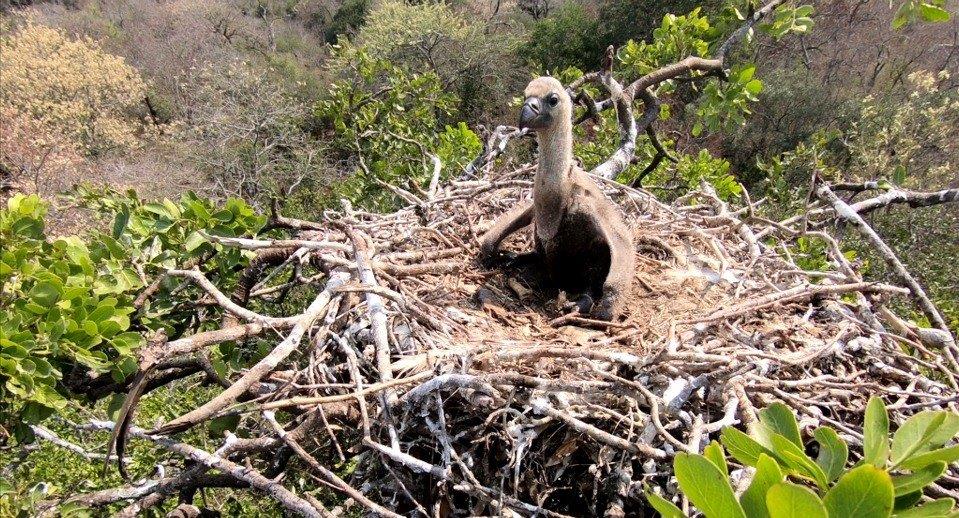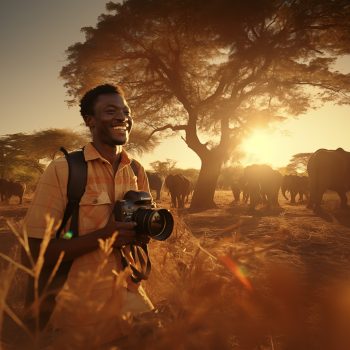Deep in the Greater Kruger, where wildlife and community intersect, young voices are speaking out about conservation and the difficulties and dreams that shape their lives.
By Savannah Burns and Liryn de Jager
In villages on Kruger’s western boundary, a chorus of young voices is poised to echo the hopes and aspirations of future conservation leaders. Among them is Grade 12 learner Dzunani Nyathi who has his sights set on becoming a wildlife vet.
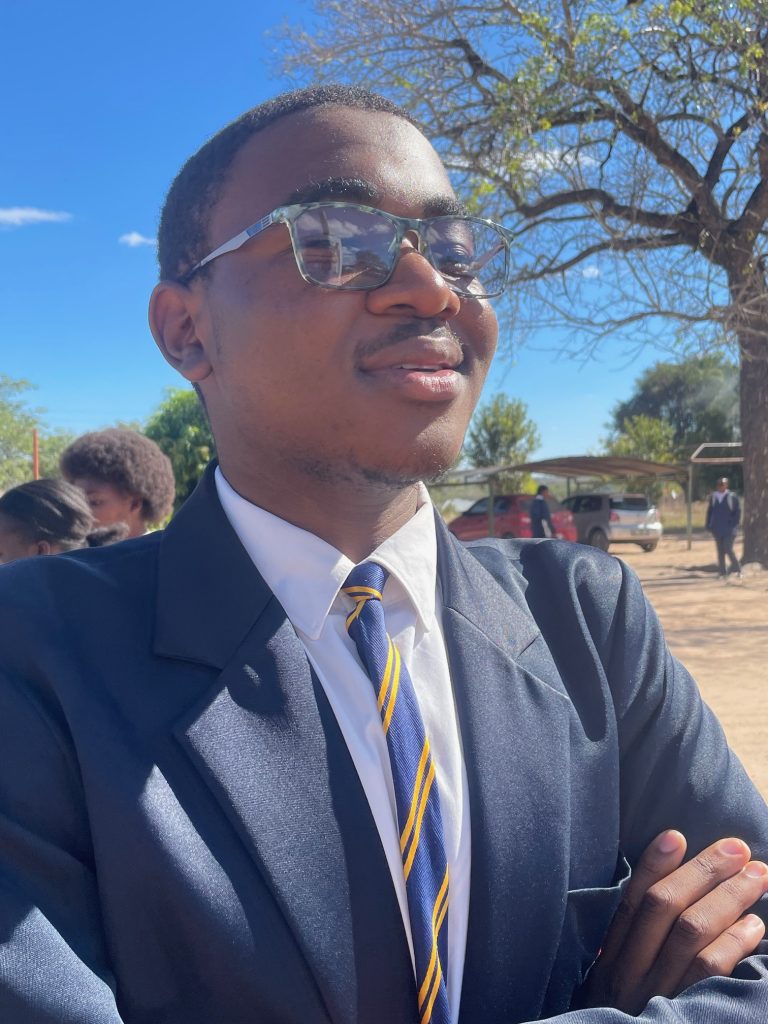
Nyathi was inspired by his grandfather, a former ranger at Manyeleti Game Reserve, wedged between the Sabi Sands and Timbavati game parks. These reserves are abundant in wildlife, including the Big Five, cheetahs, wild dogs, hyenas, giraffes, zebras, and many antelope and bird species.
In Xitsonga, Manyeleti means “The Place of Stars”. It is here, at Dayimani High School in the Hlalakahle village near Welverdiend, that Nyati hopes to excel in his matric exams, paving the way for studies in veterinary science.
The area is largely rural. Many residents rely on subsistence farming and part-time jobs. Safari operations and tourism enterprises in this Greater Kruger area are a source of work, but these benefits are spread thinly in an area where people increasingly struggle to make ends meet.
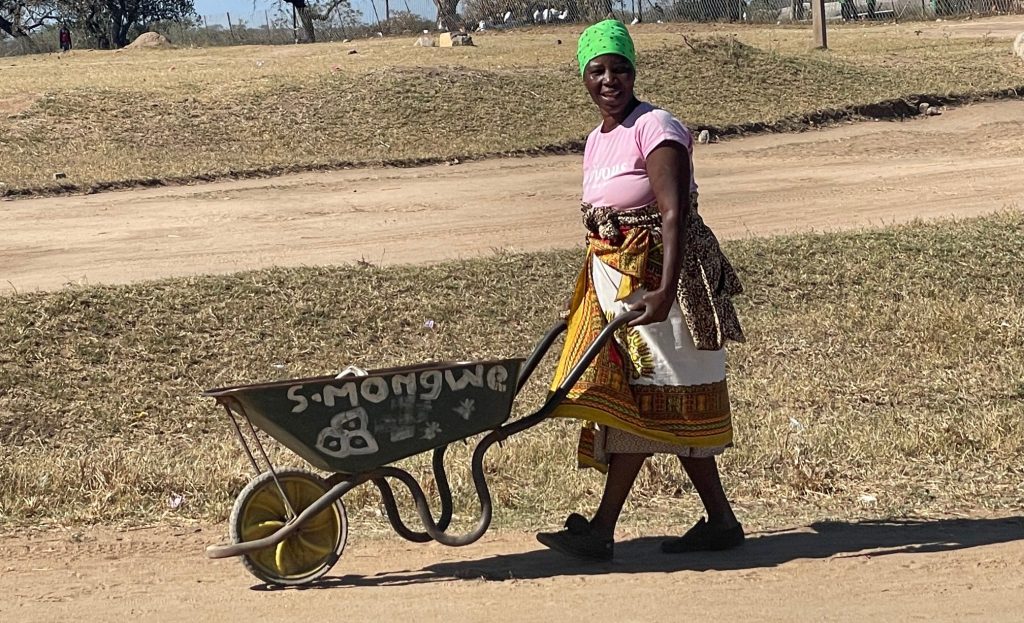
Bumpy road
The partially tarred road linking the Manyeleti district to Acornhoek, the local business hub, is deeply rutted forcing drivers to zigzag to avoid large potholes. Jobs are scarce, and with limited business opportunities, wildlife crime and poaching remain a concern.
Against this backdrop, the Southern African Wildlife College (SAWC) and environmental journalism training agency Roving Reporters have launched the Voices of Future Conservation Leaders writing competition for Grade 11 and 12 learners at high schools near game reserves on the western border of the Kruger National Park.
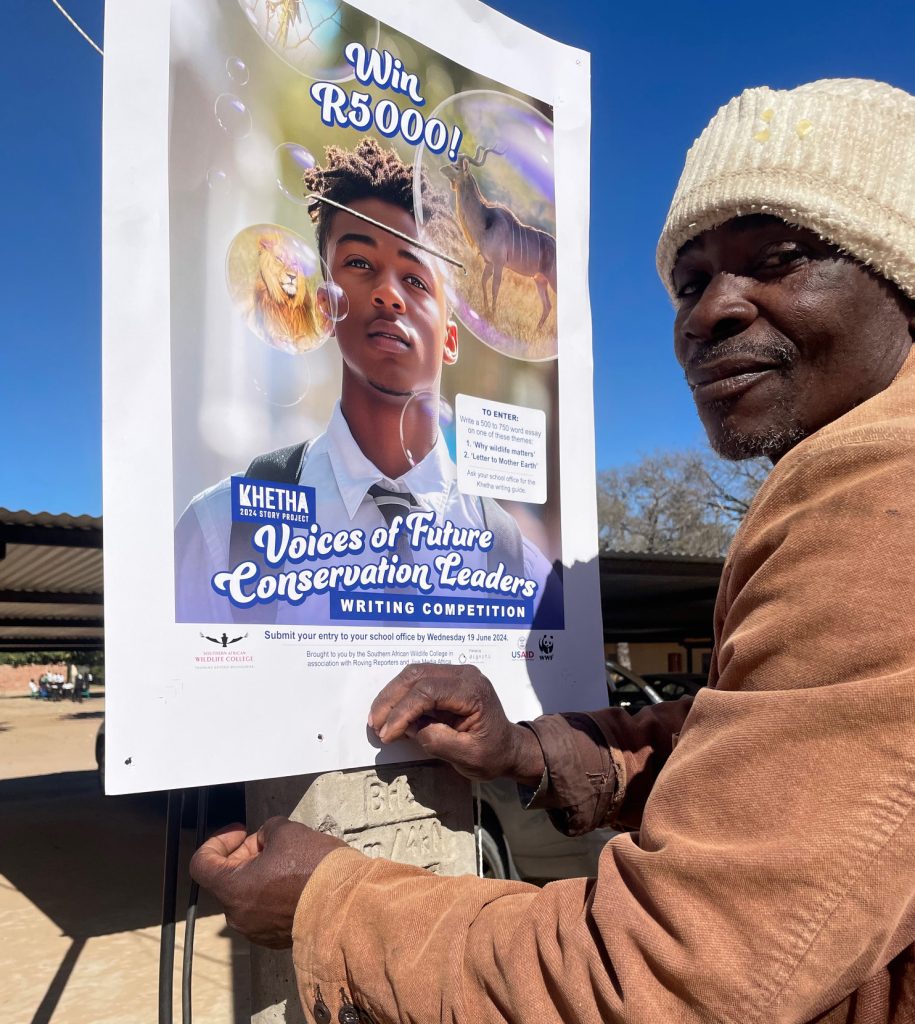
Photo: Fred Kockott
The SAWC functions as a centre for conservation training, research, and community engagement, attracting participants from across Southern Africa and beyond. The competition expands its community outreach into local high schools.
“We hope to harness the power of stories to drive change and empower future environmental leaders,” said Charlene Wandera, the SAWC Content Curator and Grant Writer.
Outreach
In support of the recent outreach activities Roving Reporters provided a writing guide to the learners, emphasising the competition’s theme of creating a better environment for people and nature in the Greater Kruger area. A Khetha info pack given to teachers reads, “As you shepherd the learners through the process of submitting their entries, remind them that their voices matter. Each word they write has the power to spark change, ignite passion, and inspire others to action.”
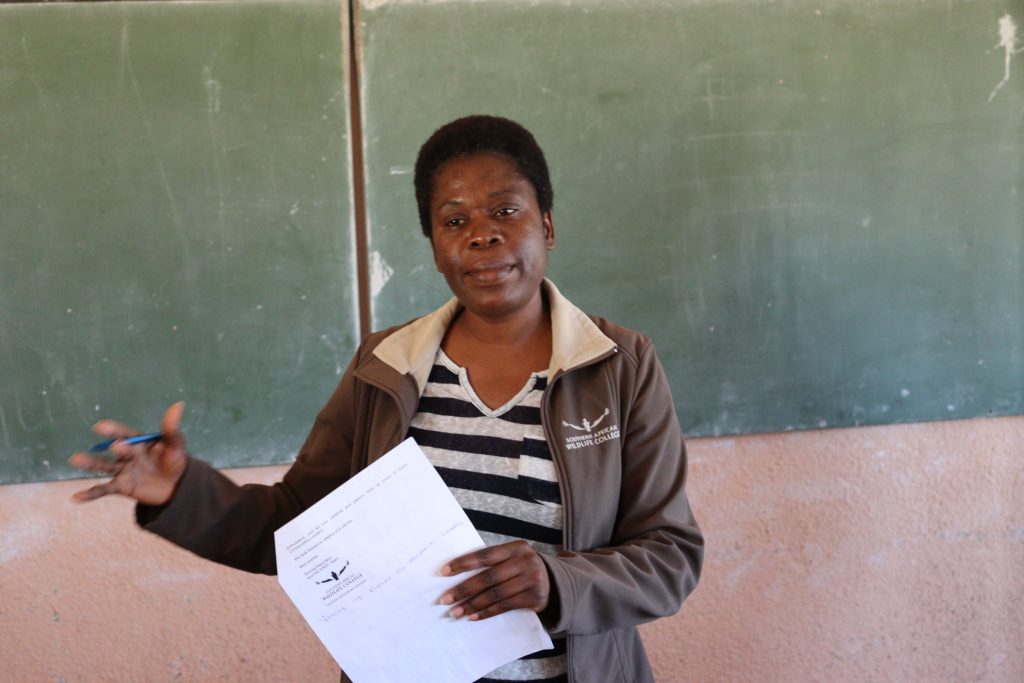
Incentives
Learners have been given the holiday period to finalise their entries. After the schools re-open on July 9, each school will select five top entries for adjudication. The SAWC will then hold a prize-giving ceremony to award cash prizes to all learners whose submissions were shortlisted.
The winning prize is R5,000, followed by a second prize of R1,500, and a third prize of R1,000. Roving Reporters and Write Away Magazine will publish the winning submissions which will also feature in a Khetha New Narratives ’24 ebook.
Among the entrants is Thandeka Nkuna, a Grade 11 learner at Mahlale High School. She wants to find out more about the many jobs related to conservation in the region, and to create awareness of the spin-offs and benefits of tourism.
“Lots of people don’t know the importance of wildlife. I do not know a lot, but I have people in my family who work in nature conservation. I will be seeing them during the holiday, so I will ask them for information to include in my story,” said Nkuna.
Beauty
Nkuna’s classmate, Senzekile Magagula, is keen to write a letter to Mother Earth, thanking her for “bringing beauty to the world”.
“I want to tell her how much we appreciate all the creatures of so many different forms, structures and sizes, all with different patterns and colours which makes us love the earth more,” said Magagula.
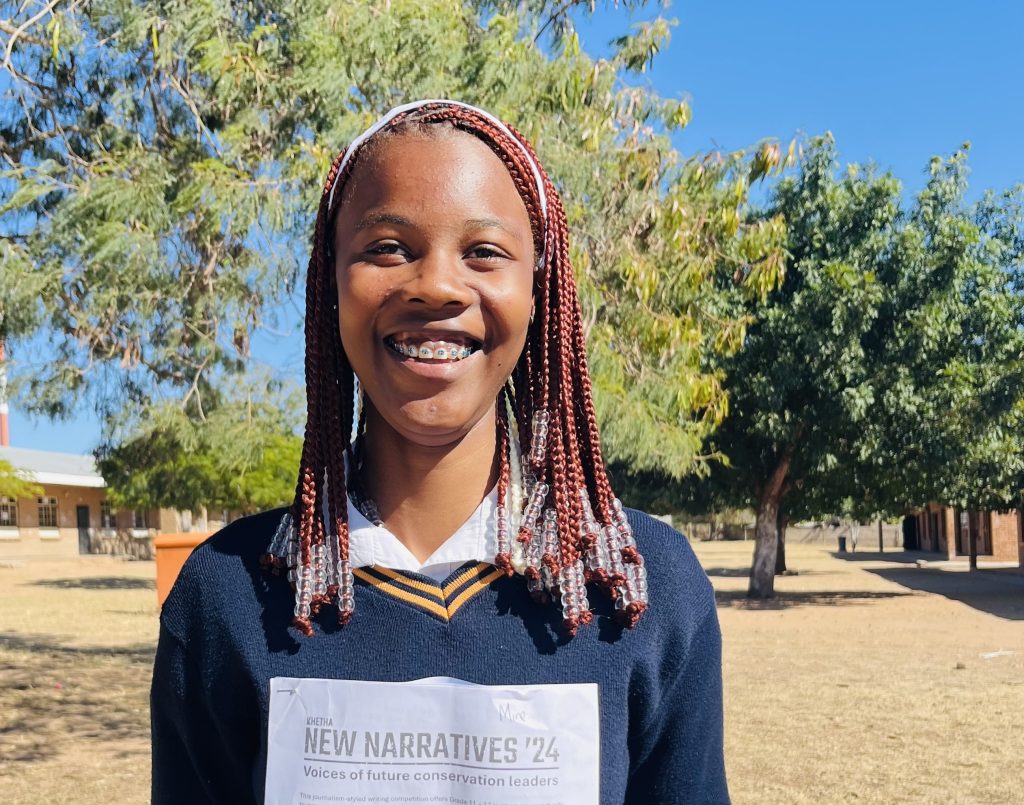
Photo: Risuna Mashele| SAWC
Genesis
The Voices of Future Conservation Leaders writing competition forms part of the Khetha 2024 Story Project. Managed by Jive Media Africa and supported by the World Wide Fund for Nature (WWF) and the United States Agency for International Development (USAID), the project includes Khetha webinars, story grants, and the New Narratives ’24 online journalism course.
Sboniso Phakathi, who coordinates the SAWC’s outreach programmes under the umbrella Rural Initiatives for a Sustainable Environment (RISE) is the chief adjudicator of the environmental writing competition.
Unfiltered
“The beauty of story-telling is that it is an art that speaks to us all, that every one of us can appreciate,” said Phakathi. “We will get to hear unfiltered, personal accounts and reflections from young people with dreams – dreams of a better life for themselves, their families, and the world.”
“And let’s not forget that it was not long ago that the Kruger National Park was exclusively for whites,” said Phakathi.
Phakathi shares the view of wildlife crime economist, Dr Annette Hübschle, that a “big disconnect” still separates fenced-off national parks from their neighbours, many of whom are denied access to the natural spaces their forefathers turned to for water, wood, game meat and fish.
READ: From panic to partnerships: New thinking on people and poaching
He argues that young people in rural areas are keenly aware of this disconnect. “And when the youth voice their concerns and ideas, it resonates deeply with people. They sit up and listen,” said Phakati.
Wandera agreed. “This is a wonderful conduit to inspire young people to think, reflect, journal, and invite us into their worlds and cultural influences that have shaped their views.”
“And who knows? Maybe their voices could influence decision makers and help inspire positive change at various levels in the conservation sector,” said Wandera.
Role model
A related Khetha 2024 story project features wildlife veterinarian Dr Lufuno Neshitavhadulu as a source of inspiration to young people. Based in Skukuza, on the southeastern boundary of Kruger, Neshitavhadulu specialises in working with large mammals, including injured elephants, rhinos and lions.
He is being profiled by SuperScientists, an initiative of the non-profit, CodeMakers, which bridges science with art to promote scientific literacy and education among children and young adults.
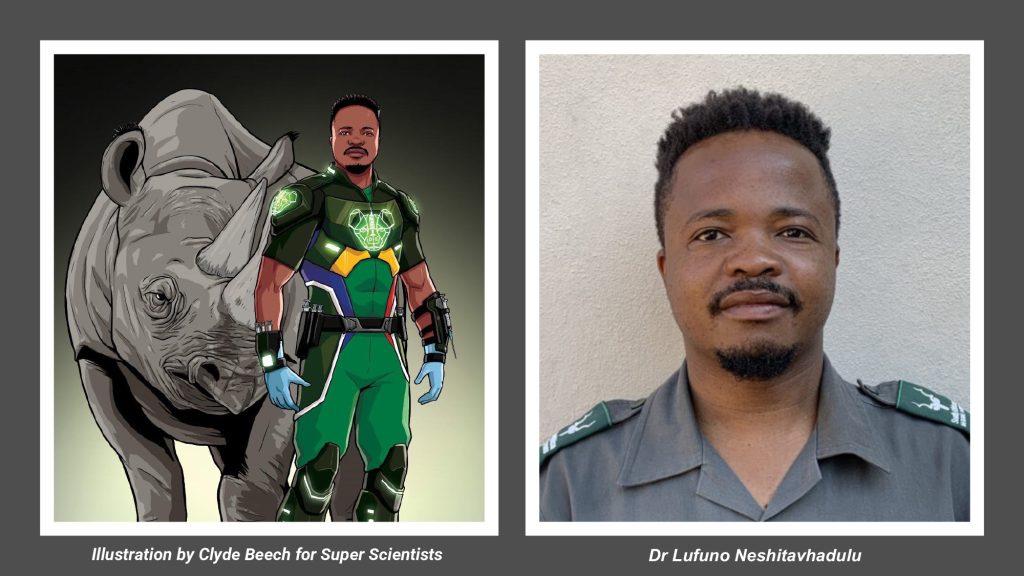
“Perhaps Dr Neshitavhadulu’s story will inspire Dzunani Nyati to pursue his dream of becoming a wildlife vet,” said the SAWC librarian, Risuna Mashele. “Khetha means to choose in Sesotho and Zulu … The message to learners is clear: They have a choice, to speak up and make their mark, contributing to making the Greater Kruger area a better place for nature – and for people.” – Additional reporting, Fred Kockott.
- This article arises from a series of New Narratives ’24 writing workshops presented by Roving Reporters at the Southern African Wildlife College.


